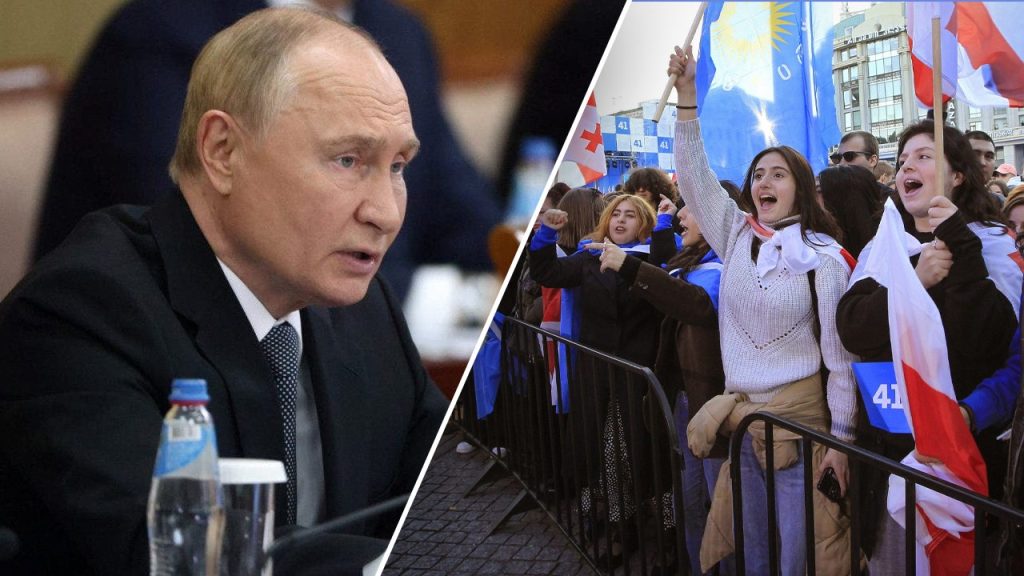Georgians are preparing to vote in crucial parliamentary elections on Saturday, amidst their desire to move closer to the West and the looming shadow of Russian President Vladimir Putin. Since gaining independence in 1991, Georgia has been torn between heavy Russian influence and its aspirations to join the European Union. Russia has a vested interest in keeping Georgia isolated from its allies and halting the EU integration process, making these elections a significant opportunity for Putin to sway the outcome. Observers believe that these elections will be one of the closest and most significant since Georgia’s independence, with the potential to reshape the country’s future trajectory.
For Russia, these elections provide an opportunity to maintain control over Georgia and prevent its alignment with the EU. A bipartisan group of U.S. senators has introduced legislation to hold Georgian officials accountable for corruption, human rights abuses, and efforts to align with Russia. Georgia’s strategic choices in the upcoming elections will have significant implications for its future trajectory and relationship with Russia. The ruling Georgian Dream Party has been accused of embracing Russian propaganda and facilitating the infiltration of Georgia’s political, economic, and security structures by Russian sympathizers, further complicating the country’s political landscape.
The upcoming parliamentary elections in Georgia have become a battleground between pro-Western aspirations and Russian interference. While the ruling Georgian Dream Party has stalled Georgia’s efforts to join the EU, polls indicate that the majority of Georgians still support closer ties with Europe. However, a victory for the Georgian Dream Party in the elections would likely further delay Georgia’s EU prospects and strengthen Putin’s influence in the region. Civic IDEA, a pro-Western nonprofit, has released a report highlighting the Georgian Dream party’s dependence on Russian funds and individuals with ties to sanctioned businesses, raising concerns about the party’s underlying motives and allegiances.
The intensifying geopolitical competition in Georgia’s parliamentary elections reflects broader tensions between Russia and the West, with Putin seeking to undermine Western alliances and stifle democratic progress in former Soviet states. The outcome of these elections will shape Georgia’s future trajectory and determine its relationship with Russia and the EU. Despite the ruling party’s efforts to align with Russia, everyday Georgians overwhelmingly support closer ties with the EU, highlighting a growing disconnect between the political elite and the general population in Georgia.
The stakes are high for Georgia as it navigates complex geopolitical dynamics and strives to assert its independence in the face of Russian influence. The outcome of the parliamentary elections will not only determine the country’s path towards the West or closer alignment with Russia but also represent a critical juncture in Georgia’s quest for democracy and Euro-Atlantic integration. The international community, including the United States and EU, will be closely monitoring the elections to ensure free and fair processes and to support Georgia’s democratic aspirations amidst growing pressure and interference from Russia.
As Georgians head to the polls, the future of the country hangs in the balance, with competing visions of its place in the international arena at play. The outcome of the elections will not only shape Georgia’s relationship with Russia and the West but also reflect broader tensions within the region and the global power struggle between democracy and authoritarianism. Georgia’s determination to move closer to the EU despite Russian interference underscores the resilience of its people and their commitment to democratic values in the face of external challenges.













